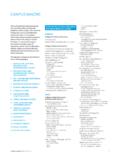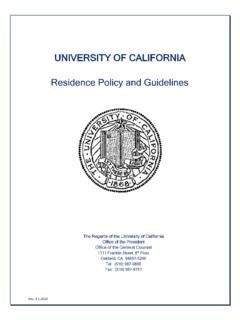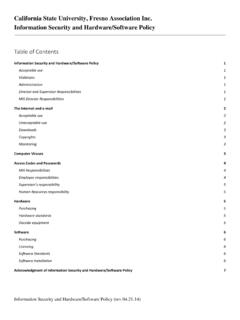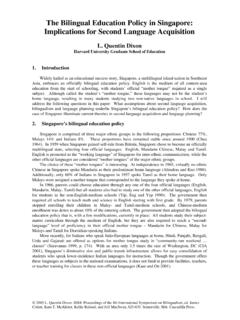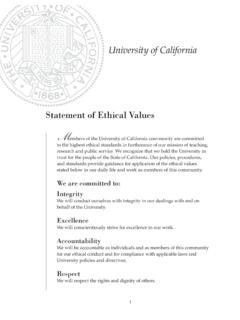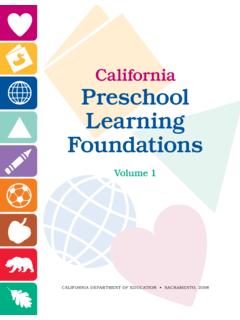Transcription of University of California, San Francisco Helen Diller ...
1 PRMS PRC Review policy Page 1 of 14 Revision 10 11/02/2016 11/02/2016 University of california , San Francisco Helen Diller family comprehensive Cancer Center PRMS Protocol Review Committee (PRC) Review policy PRMS Procedure for Protocol Review by PRC Purpose Per CCSG Guidelines, it is particularly important for Centers involved in clinical research to establish a mechanism for assuring adequate internal oversight of the conduct of all cancer clinical trials in the institution or institutions that formally comprise the Center. The focus of the Protocol Review and Monitoring System (PRMS) is on scientific merit, priorities and progress of the clinical research in the Center. The PRMS should have the authority to open protocols that meet the scientific merit and scientific priorities of the center and to close protocols that do not demonstrate adequate scientific progress.
2 PRMS responsibilities at this institution are carried out on two separate levels to ensure optimal oversight of progress and performance. There is initial review by the applicable Site Committee(s), followed by independent review by the Protocol Review Committee (PRC). The purpose of this policy is to document the full review processes undertaken by the Protocol Review Committee. Procedures Meeting Schedule The Protocol Review Committee meets monthly; if there is sufficient demand, additional meetings are called. Review Functions One central Protocol Review Committee evaluates all clinical trials involving patients with cancer or those at risk for cancer undertaken at the University of california San Francisco (UCSF) Helen Diller family comprehensive Cancer Center (hereafter referred to as the HDFCCC) and its affiliates.
3 The committee is required to: Review all documents submitted in applications, including protocols, Site Committee reviewer and review outcome forms, pertinent PRC application information, and, as applicable, investigator s brochures, surveys, quality of life questionnaires, other tools, and letters of support (protocols must meet the minimum set of guidelines and standards included in the HDFCCC PRMS PRC Review policy Page 2 of 14 Revision 10 11/02/2016 11/02/2016 protocol templates; see ( #inst-trials) Assess general feasibility, targeted annual accrual expectations, justification for accrual goals or prior accrual for similar population, and competing trials for each new clinical protocol Review and assess the review forms and Final Overall Score submitted by the Site Committees for all new protocols Undertake scientific review (evaluate the scientific questions, the validity of the study design and the biostatistical methods employed in all studies))
4 Of all submitted protocols and subsequently assign an Overall Scientific Score to all new protocols Ensure that all new protocols have appropriate data safety monitoring plans in place, and assign risk level for all UCSF-initiated institutional protocols according to the HDFCCC Data Safety Monitoring Plan (DSMP), and inform the DSMC Provide centralized prioritization across the entire HDFCCC Ensure that all review concerns are adequately addressed and the protocol is appropriately revised prior to issuing initial approval Review and approve all protocol amendments per HDFCCC standards (see PRMS Amendment Review policy ) Maintain written records of all meetings Assess accrual and scientific relevance for all open and enrolling studies which are not PRC exempt Request (and approve) corrective action plans for poorly accruing studies, and close studies that do not meet accrual standards per HDFCCC criteria.
5 New Protocol Review Types All clinical trials studying patients with cancer or those at risk for cancer conducted at the HDFCCC and its affiliates require PRC review. Review is either by the full committee or by the Chair or Vice Chair (expedited). All new submissions are triaged by the PRC Administrator and processed accordingly. Trials exempt from review by the PRC are also triaged by the PRC Administrator. All PRC submissions and reviews are managed electronically in a secure electronic web-based database. Review and exemption parameters are defined below. Where there is a question on review parameters, the PRC Chair or Vice Chair adjudicates. PRMS PRC Review policy Page 3 of 14 Revision 10 11/02/2016 11/02/2016 Studies requiring full committee review: Institutional (investigator-initiated) interventional clinical trials involving human subjects that are developed by a UCSF investigator and are prospective studies involving human subjects designed to answer specific questions about the effects or impact of particular biomedical interventions such as drugs, treatments, or devices.
6 * Participants in these trials may be patients with cancer or people without a diagnosis of cancer but at risk for cancer. All multi-center investigator-initiated research involving treatment interventions, regardless of whether UCSF is the core or originating institution (coordinating center), are required to receive full committee review (unless they originate from another NCI-designated Cancer Center). If the grant that funds an investigator-initiated trial was peer-reviewed at the national level, HDFCCC PRC review of the trial may not be required. Institutional interventional behavioral or psychosocial clinical trials developed by a UCSF investigator that are prospective studies involving human subjects designed to answer specific questions about the effects or impact of particular behavioral interventions, including interventions whose goals are to increase behaviors ( cancer screening, physical activity, fruit and vegetable intake), eliminate or reduce behaviors ( , smoking, sun exposure) and/or improve coping and quality of life ( , among cancer survivors) and reduce the negative sequelae of treatment.
7 * Interventions may pertain to cancer prevention, early detection, and survivorship. Participants in these trials may be patients with cancer or people without a diagnosis of cancer but at risk for cancer. Investigator-initiated research which may be multi-center and for which UCSF is the core or originating institution (coordinating center) will be considered as an investigator-initiated clinical trial. If the grant that funds an investigator-initiated trial was peer-reviewed at the national level, HDFCCC PRC review of the trial may not be required. Prospective Institutional molecular or imaging diagnostic clinical trials meeting all of the following criteria*: o contain a clearly defined hypothesis with pre-specified sample size and statistical analysis plan o may impose some risk o use the information from the diagnostic test in a manner that affects medical decision-making for the study subject.
8 Non NCI-cooperative group consortium studies are reviewed as if investigator-initiated and must meet the above institutional criteria to receive full committee review. Industry (commercially-sponsored) clinical trials are commercially funded prospective studies involving human subjects designed to answer specific questions about the effects or impact of particular biomedical interventions such as drugs, treatments, or devices.* Participants in these trials may be patients with cancer or people without a diagnosis of cancer but at risk for cancer. Commercially-sponsored clinical trials must have a formal arrangement for audit PRMS PRC Review policy Page 4 of 14 Revision 10 11/02/2016 11/02/2016 of the data in order to be included in this category; trials that do not have data audit will be considered under the institutional category.
9 Standard of Care studies that are prospective, non-randomized single arm treatments for a particular disease, where the treatment regimen is NOT the subject of the research. The regimen should be considered reasonable and appropriate therapy for the disease, and the protocol should justify the standard of care status of the treatment. Outcome measures may include survival, disease-free survival, major toxicity, quality of life, or other administration-related quality endpoints. The goal of a standard of care study is to administer therapy in a uniform way and to track measures of quality of care and outcome. With prior approval from the applicable Site Committee, and PRC and CHR, Phase III trials that meet accrual goals may be converted to standard of care trials.
10 * Exceptions include testing non-cancer-specific diagnostic or therapeutic interventions within a cancer patient population, which may require only Expedited review , a flu vaccine in BMT patients. Studies requiring expedited review: All cooperative group trials involving human subjects that are sponsored by a national clinical trials organization with NCI approval and external funding mechanisms, regardless of whether or not they involve interventions. These trials are externally peer-reviewed and are audited on a schedule determined by each cooperative group. All multi-center investigator-initiated research originating from another NCI-designated Cancer Center (Lead Site) may receive expedited review provided the following criteria are met: o The Lead Site 1) has a fully approved PRMS, 2) has conducted full committee review for scientific merit, prioritization and feasibility, and 3) has issued full approval of the current protocol document o The Lead Site agrees to provide to the PRMS Manager with its CCSG renewal date and an assertion that its PRMS is fully approved o The Lead Site can provide proof of full PRMS approval to the PRMS Manager, to include documentation of the approved protocol version.



